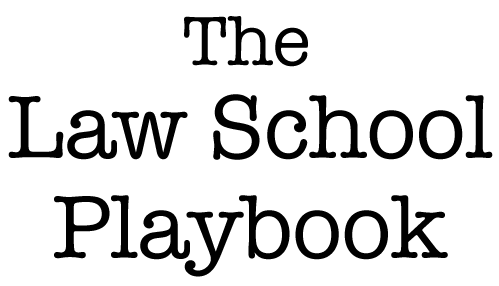Dear Student,
Welcome to The Law School Playbook! I’m Halle Hara, a professor of academic success and personal skills coach to law students and attorneys. I’m glad you’re here! At the risk of sounding like a nagging parent, I implore you to please read for class—it is not optional. I know if you had your druthers, you’d mark every assignment on your syllabi with “TL; DR,” for “too long, didn’t read,” especially in the busiest year of your academic life. However, you are overlooking the critical fact that reading is what lawyers get paid to do.
Whether examining contracts, cases, statutes, or legislative history, lawyers use the text they read to generate ideas. Critical reading is the backbone for all legal reasoning, whether it is deductive or syllogistic, inductive, or analogical. Thus, shortcuts like canned briefs may get you through class, but they deprive you of the skill set you need to practice law.
Let’s put this in other contexts to make it come to life:
You’re a college coach looking to recruit a basketball player. You find a kid who has great natural talent, but skipped all the workouts. Is this your top pick?
You’re patient in need of surgery. You find a surgeon, but learn that she watched YouTube videos rather than reading in medical school. Is she your top pick?
As lawyers, you will be helping your clients deal with problems during some of the most challenging times of their lives. You owe it to them—and yourself—to embrace what Dr. Robert Bjork, Distinguished Research Professor in the Department of Psychology at UCLA, calls the “desirable difficulty,” or the intellectual challenge that case reading presents.
As Stanford Law Professor Jay A. Mitchell has said:
We lawyers read a lot. We read when we research or do due diligence. We read to prepare for interviews, counseling sessions, negotiations, and oral arguments. We read when we edit a colleague’s or our own drafts, or review a brief or proposed contract from the other side. We read all kinds of things. Corporate lawyers read governance materials, contracts, financial disclosures, and transaction closing documents. Environmental lawyers read administrative records and technical studies. Intellectual property lawyers read patents. Criminal lawyers read police reports. Tax lawyers read letter rulings. Litigators read motions, briefs, transcripts, and the diverse documents produced in discovery. Just about every lawyer reads statutes, rules, forms, regulatory directives, judicial opinions, and memos. We’re paid to read, and we’re relied upon to do it well.
Although reading the complex cases assigned to you may require considerable effort, it improves your long-term performance as a law student and as a future lawyer. Don’t cheat yourself by taking the easy way out.
If you would like to read this episode, get suggestions for further reading, or to request individual coaching with me, please visit my website at www.lawschoolplaybook.com.
As always, do your best, and I’ll be rooting for you!
References and Further Reading
Elizabeth M. Bloom, Creating Desirable Difficulties: Strategies for Reshaping Teaching and Learning in the Law School Classroom, 95 U. Det. Mercy L. Rev. 115 (2018).
Catherine Martin Christopher, Normalizing Struggle, 71 Ark. L. Rev 4 (2019). https://papers.ssrn.com/sol3/papers.cfm?abstract_id=3378829.
Debra Moss Curtis & Judith R. Karp, “In A Case, In A Book, They Will Not Take A Second Look!” Critical Reading in the Legal Writing Classroom, 41 Willamette L. Rev. 293 (2005).
Ian Gallacher, “Who Are Those Guys?”: The Results of A Survey Studying the Information Literacy of Incoming Law Students, 44 Cal. W. L. Rev. 151, 162 (2007).
Ruth Ann McKinney, Reading Like a Lawyer: Time-Saving Strategies for Reading Law Like an Expert 15, 35–45 (2d ed. 2012).
Jay A. Mitchell, Reading (in the Clinic) is Fundamental, 19 Clinical L. Rev. 297 (2012).
Maryanne Wolf, Reader, Come Home: The Reading Brain in a Digital World 2–3, 92 (2018).
